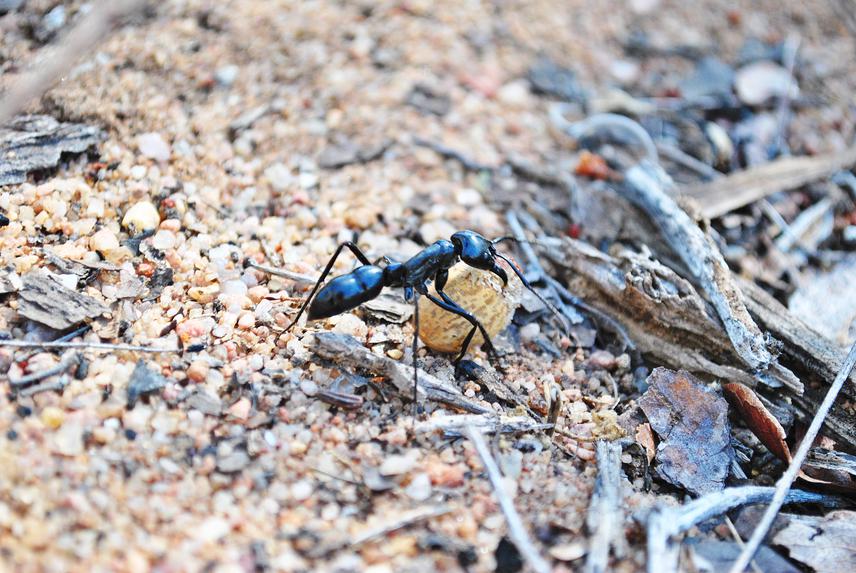Xavier Arnan Viadiu
This project aims to demonstrate the effects of chronic anthropogenic disturbance on ant-mediated ecosystem services and their vulnerability to climate change in the Brazilian Caatinga

An individual of Dinoponera quadriceps (Family Formicinae) interacting with a Jatropha mutabilis (Family Euphorbiaceae) seed. ©Fernanda Oliveira
The Caatinga is one of the most endangered ecosystems of Brazil, mainly due to historical unsustainable exploitation of natural resources by an ever-growing human population. This situation is likely to exacerbate in the near future based on climate change models predicting increased variability of weather conditions and higher frequency of extreme events that may intensify the negative effects of human disturbance. Surprisingly, however, the effects of chronic anthropogenic disturbance (CAD) on biodiversity and the maintenance of ecosystem stability have been little explored. There is thus an urgent need to predict the effects of disturbance on biodiversity-mediated ecosystem services and their vulnerability to climate change to guide conservation efforts and the management of ecological resources in the Caatinga. Ants are important for the maintenance and functioning of many basic ecosystem services.
Particularly, ants enhance plant performance through seed dispersal and protection against herbivores. This project aims to demonstrate that CAD has dramatic consequences to ecosystem services provided by ants, which further increase their vulnerability to climate change. Taken together, these consequences may hinder ecosystem health and compromise future human use of the Caatinga. This project also aims to contribute to increase the awareness of local communities about the importance of ants and other insects for ecosystem processes, and how human activity can compromise these processes. The final contribution of this project will be to generate a public debate between researchers, local managers and local communities towards more sustainable ways to exploit the Caatinga, without compromising biodiversity and ecosystem functions. Ultimately, our results are expected to guide local conservation policies for mitigating the negative effects of CAD in combination with climate change.
Header: A worker of Camponotus sp. (Family Formicinae) feeding at a floral extra-nectary. © Fernanda Oliveira.